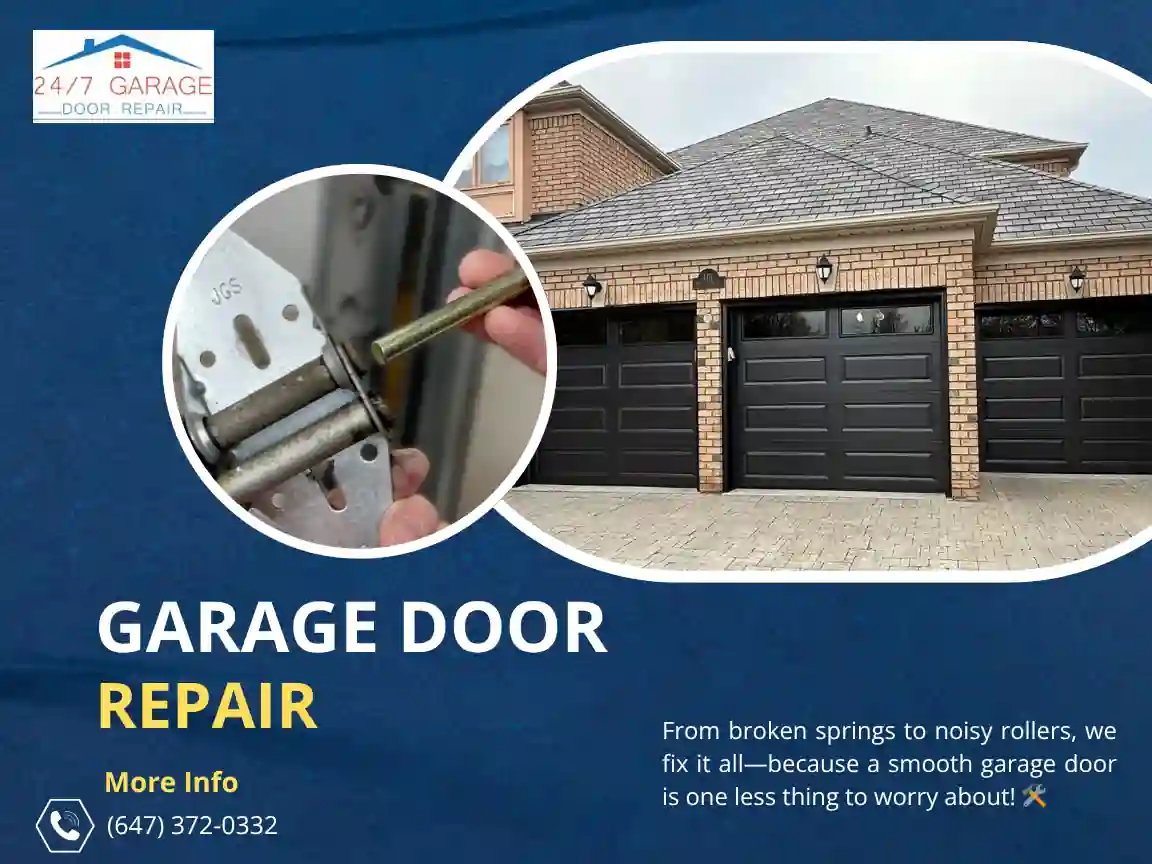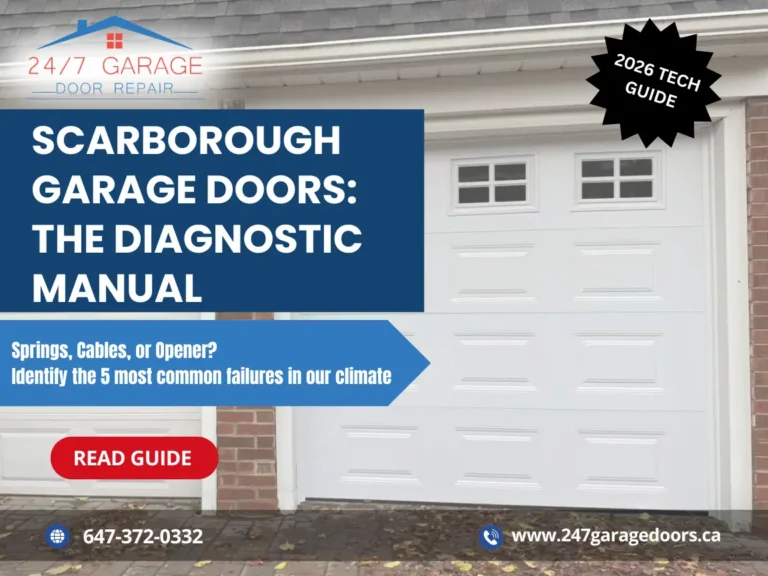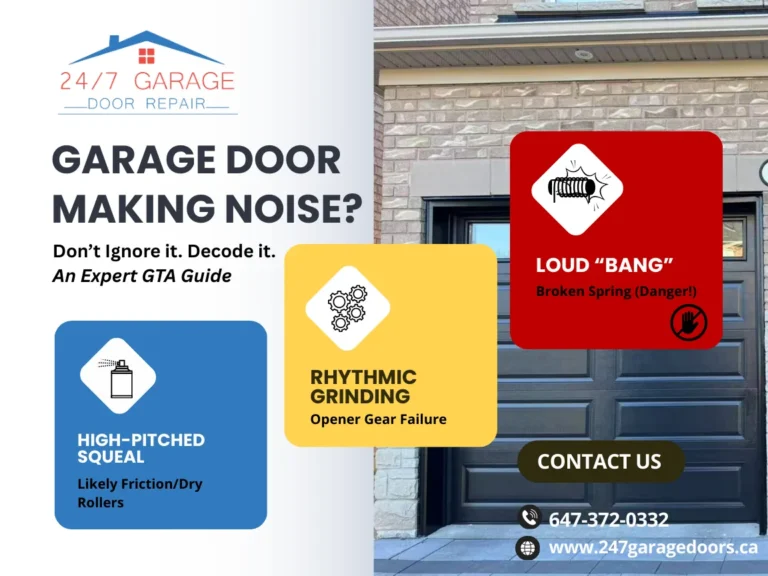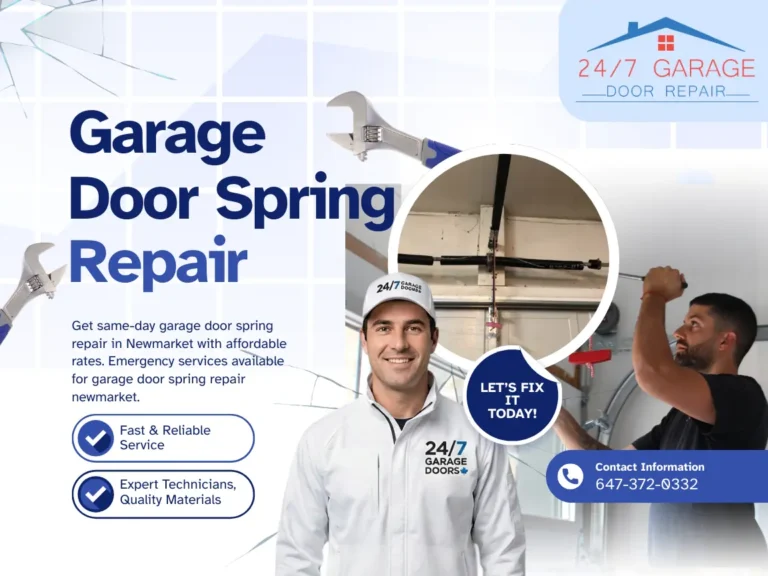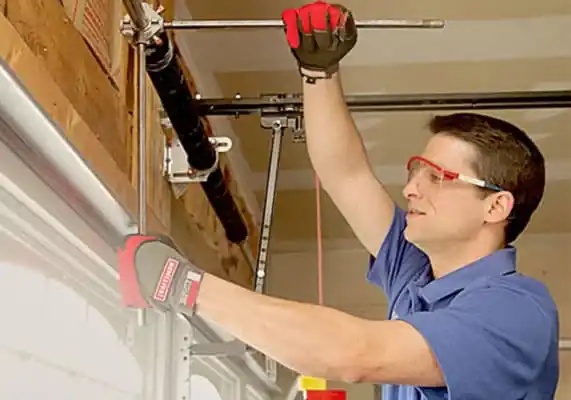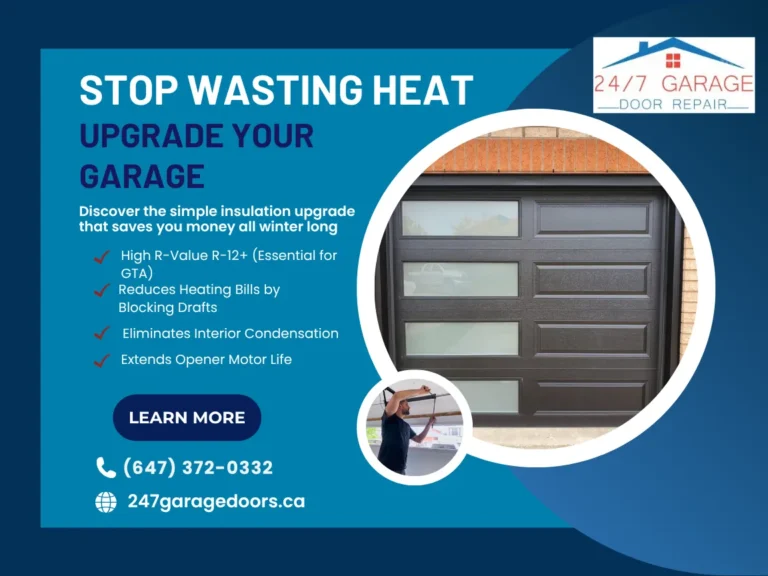Your garage door – it’s a silent hero, opening and closing multiple times a day, protecting your vehicles and belongings. But have you ever stopped to think about the unsung champions that make its smooth operation possible? We’re talking about garage door rollers. These small but mighty components are crucial for a quiet, efficient, and long-lasting garage door system. If you’re experiencing a noisy, shaky, or struggling garage door, there’s a good chance your rollers are the culprits.
In this comprehensive guide, we’ll delve deep into the world of garage door rollers. We’ll explore their different types, discuss why they’re so important, provide tips on maintenance, and even walk you through the process of replacing them. So, let’s roll up our sleeves and get started!
Why Are Garage Door Rollers So Important? The Unsung Heroes of Your Garage
Imagine a train trying to run on square wheels – it wouldn’t get very far, and it would make an awful racket! Similarly, worn-out or low-quality garage door rollers can significantly impair your garage door’s performance. Here’s why they’re so vital:
- Smooth Operation: High-quality rollers allow your garage door to glide effortlessly along its tracks. This reduces friction and strain on other components, like your opener.
- Reduced Noise: Squeaky, grinding, or clunking sounds are often a tell-tale sign of worn-out rollers. New rollers can transform a noisy operation into a whisper-quiet one. 🤫
- Extended Lifespan of Your Opener: When rollers aren’t doing their job, your garage door opener has to work harder to lift and lower the door. This added stress can lead to premature wear and tear on your opener, resulting in costly repairs or replacement.
- Enhanced Safety: A struggling garage door can be a safety hazard. Worn rollers can cause the door to bind or even come off its tracks, potentially leading to accidents. Properly functioning rollers contribute to a safer environment.
- Energy Efficiency: While not immediately obvious, a smoothly operating door with good seals (which rely on proper door movement) can help maintain your garage’s temperature, potentially leading to minor energy savings.


Understanding the Different Types of Garage Door Rollers: Not All Rollers Are Created Equal
Just like tires on a car, not all garage door rollers are built the same. They vary in material, bearing type, and stem length. Understanding these differences is key to choosing the right ones for your garage door.
Here’s a breakdown of the most common types:
| Roller Material | Pros | Cons | Ideal Use |
| Plastic | Inexpensive, lightweight | Least durable, prone to cracking, noisy over time, not for heavy doors | Light-duty, rarely used doors |
| Steel | More durable than plastic, good for heavier doors, widely available | Can be noisy without nylon coating, susceptible to rust (unless coated) | Standard residential doors |
| Nylon | Most durable, quietest operation, resistant to wear and tear, requires less lubrication | More expensive than plastic or steel | Heavy-duty, high-cycle doors, quiet operation |
Export to Sheets
Beyond the material, the bearings within the rollers play a crucial role in their performance and lifespan.
- No Bearings (Plastic Rollers): These are the simplest and cheapest, but also the least durable and quiet. They simply rotate on a metal shaft.
- Steel Ball Bearings: These offer much smoother operation and greater durability. The number of ball bearings (e.g., 7-ball, 10-ball, 13-ball) indicates the quality and smoothness. More bearings generally mean a smoother, quieter, and more durable roller.
- Sealed Bearings: These are the best of the best. The bearings are sealed, preventing dirt and debris from entering and extending their lifespan significantly. They are the quietest and require the least maintenance.
The stem length of a roller refers to the length of the shaft that inserts into the track. Common lengths include 4 inches, 7 inches, and sometimes longer for specific commercial applications. Most residential doors use 4-inch or 7-inch stems. For more detailed information on roller types, you can consult resources like Creative Door’s guide on choosing rollers.
When to Consider Upgrading Your Garage Door Rollers: Signs It’s Time for a Change
Your garage door rollers are constantly at work, and over time, they will wear out. Here are some clear indicators that it might be time to replace your old rollers with new, high-performance ones:
- Excessive Noise: This is often the first and most obvious sign. Squealing, grinding, or loud clunking sounds during operation indicate worn bearings or flat spots on the roller. 📢
- Jerky or Uneven Movement: If your garage door shudders, shakes, or seems to get “stuck” at certain points along the track, your rollers are likely struggling.
- Visible Wear and Tear: Inspect your rollers regularly. Look for cracks, chips, flat spots, or signs of rust on steel rollers. If you see plastic or nylon material flaking off, it’s definitely time for a change.
- Rollers Coming Off the Track: This is a serious safety concern and often indicates severely worn or damaged rollers, or misaligned tracks. Do not operate your door if this happens.
- Increased Strain on the Opener: If your garage door opener sounds like it’s working harder than usual, it could be compensating for worn rollers.
- Age of Rollers: As a general rule of thumb, plastic rollers should be inspected every 2-3 years, while steel rollers may last 5-7 years. High-quality nylon rollers can last 10-20 years or more with proper maintenance.
The Benefits of Upgrading to High-Quality Nylon Garage Door Rollers
While steel rollers are a common choice, many homeowners are making the switch to high-quality nylon garage door rollers for good reason. The benefits are significant:
- Superior Quietness: Nylon rollers, especially those with sealed ball bearings, offer virtually silent operation. Say goodbye to waking up the neighbors every time you leave or arrive! 🤫
- Exceptional Durability: Nylon is a resilient material that resists wear and tear much better than plastic or even un-coated steel. With sealed bearings, they are incredibly long-lasting.
- Reduced Maintenance: Nylon rollers require less lubrication compared to steel rollers, as they don’t rust and their smooth surface creates less friction.
- Smoother Operation: The inherent properties of nylon combined with quality bearings result in an incredibly smooth and effortless glide along the tracks.
- Increased Lifespan of Your Entire System: By reducing friction and strain, high-quality nylon rollers extend the life of your garage door opener, springs, and tracks.
If you’re looking for the ultimate upgrade in performance and quietness, investing in heavy-duty nylon garage door rollers is a smart choice.
DIY vs. Professional Installation: What to Consider When Replacing Garage Door Rollers
Replacing garage door rollers can be a DIY project for the mechanically inclined, but it’s crucial to understand the risks and complexities involved.
DIY Considerations:
- Safety First: Garage doors operate under high tension from springs, which can be extremely dangerous if not handled properly. Always exercise extreme caution. For important safety tips, you can refer to articles on DIY garage door repair safety.
- Tools Required: You’ll need basic hand tools like wrenches, pliers, and potentially a pry bar.
- Step-by-Step Process:
- Disengage the Opener: Unplug your garage door opener.
- Open the Door Partially: Open the door manually until the first roller is accessible and the door is stable.
- Support the Door: Use a C-clamp or vice grips to secure the door to the track above the roller you are working on to prevent it from moving unexpectedly.
- Remove the Old Roller: Carefully pry out the old roller from its bracket.
- Insert the New Roller: Slide the new roller into place, ensuring it’s properly seated in the track.
- Repeat for Remaining Rollers: Work on one roller at a time, moving the door slightly to access the next. For bottom rollers, it’s often safer to disconnect the bottom bracket (which is under spring tension – exercise extreme caution or call a professional for this!).
- Lubricate: Once all rollers are replaced, apply a silicone-based lubricant to the new rollers and the tracks.
- Test: Re-engage the opener and slowly test the door’s operation.
When to Call a Professional for Garage Door Roller Replacement:
While DIY is possible for some, there are many situations where calling a professional is highly recommended for garage door roller replacement:
- Bottom Rollers: These are under immense spring tension and require specialized knowledge and tools to replace safely. Attempting this without proper training can lead to serious injury.
- Damaged Tracks: If your tracks are bent or misaligned, simply replacing the rollers won’t solve the underlying problem. A professional can diagnose and fix track issues.
- Unfamiliarity with Garage Door Mechanics: If you’re not comfortable working with mechanical systems under tension, it’s best to leave it to the experts.
- Safety Concerns: Your safety is paramount. If you have any doubts about your ability to perform the replacement safely, don’t hesitate to call for help.
- Comprehensive Inspection: Professionals can also perform a full inspection of your garage door system, identifying other potential issues and ensuring everything is in optimal working order.
For reliable and safe garage door roller replacement service, especially if you’re dealing with the intricate bottom rollers or have any safety concerns, please give 24/7 Garage Doors a call for further information or to book with us! Professional replacement costs can vary, but generally range from $120 to $250 for residential doors, including parts and labor.
Maintenance Tips for Extending the Life of Your Garage Door Rollers
Even the highest quality garage door rollers will benefit from regular maintenance. Here are some simple tips to keep them rolling smoothly for years to come:
- Regular Inspection: Once or twice a year, visually inspect your rollers for signs of wear and tear, rust, cracks, or flat spots. Look for any debris accumulating around the roller shaft.
- Lubrication: This is key! For steel rollers, use a silicone-based garage door lubricant or white lithium grease. Avoid WD-40, as it can attract dirt and dry out over time. Apply a thin coat to the roller bearings and the shaft. For nylon rollers with sealed bearings, less frequent lubrication (every 1-2 years) is usually sufficient, as the sealed bearings don’t require direct lubrication. For more on proper lubrication, check out guides on best garage door lubricants.
- Clean the Tracks: Dirt, dust, and debris can accumulate in your garage door tracks, creating friction and hindering roller movement. Use a damp cloth to wipe down the inside of the tracks regularly. 🧼
- Tighten Hardware: Periodically check that all bolts and screws holding the roller brackets and tracks are tight. Loose hardware can lead to misalignment and increased wear on rollers.
- Professional Tune-Up: Consider scheduling a professional garage door tune-up every 1-2 years. A technician can identify potential issues before they become major problems, lubricate components, and ensure your entire system is balanced and operating correctly. A comprehensive garage door maintenance checklist can help you keep track of all necessary tasks.
By following these simple maintenance tips, you can significantly extend the lifespan of your garage door rollers and ensure your garage door continues to operate smoothly and quietly.
Beyond Rollers: The Importance of a Complete Garage Door System
While garage door rollers are undeniably important, they are just one piece of the puzzle. A truly efficient and safe garage door system relies on all its components working in harmony. This includes:
- Springs: Torsion or extension springs provide the counterbalance force that makes your garage door feel light. Worn or broken springs are extremely dangerous and must be replaced by a professional.
- Tracks: Properly aligned and clean tracks are essential for smooth roller movement.
- Cables: These connect the springs to the bottom of the door and are crucial for lifting and lowering.
- Hinges: These connect the different panels of your garage door and allow them to flex as the door opens and closes.
- Opener: The motor and chain/belt system that automates the door’s movement.
If any of these components are worn or damaged, it can put undue stress on your rollers and the entire system. That’s why a holistic approach to garage door maintenance is always best.
The Future of Garage Door Rollers: Innovation for Quieter, More Durable Performance
The garage door industry is continuously evolving, and that includes improvements in garage door rollers. We’re seeing a growing emphasis on:
- Advanced Materials: Research into even more durable and self-lubricating composites for roller construction.
- Enhanced Bearing Technology: Further improvements in sealed bearing designs for even quieter operation and extended lifespan, minimizing the need for frequent garage door roller replacement service.
- Smart Rollers? While not yet mainstream, imagine rollers with integrated sensors that could alert you to wear and tear or potential issues before they become major problems.
These innovations promise even greater reliability and convenience for homeowners in the years to come.
Conclusion: Invest in Your Garage Door’s Health with Quality Rollers
Your garage door is a significant investment and a vital part of your home’s functionality and security. Don’t let worn-out garage door rollers compromise its performance or shorten its lifespan. By understanding the different types, recognizing the signs of wear, and embracing regular maintenance, you can ensure your garage door operates smoothly, quietly, and safely for years to come.
Whether you’re considering a DIY replacement or opting for professional assistance, prioritizing the health of your rollers is a smart decision. If you’re in need of garage door roller replacement service or simply want a professional inspection to ensure your system is in top shape, don’t hesitate to reach out. Please give 24/7 Garage Doors a call for further information or to book with us today! We’re here to help you roll into a smoother, quieter garage door experience. 📞


